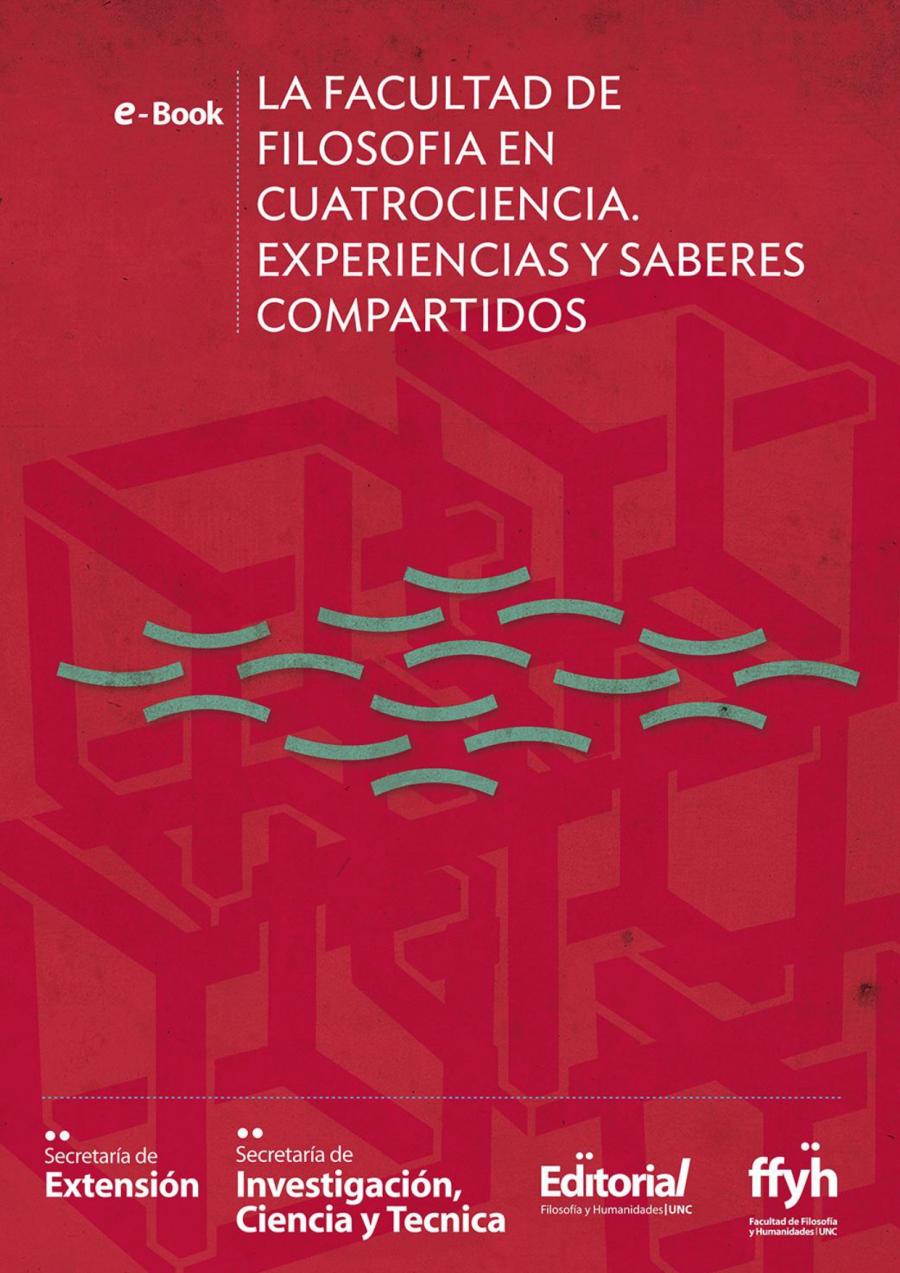La Facultad de Filosofía en cuatrociencia, experiencias y saberes compartidos
Palabras clave:
historia, ciencias sociales, filosofía, Universidad Nacional de Córdoba, extensión universitaria, afrodescendientes, inmigrantes bolivianos - identidad cultural, patrimonio cultural - Córdoba (Argentina), patrimonio documental - preservación, trabajo sexual - aspectos sociales, derechos humanos, archivos - Conservación y restauración, patrimonio bibliográfico de mujeres - Argentina, indización - aspectos ideológicos, CuatrocienciaSinopsis
Entre el 15 de marzo y el 14 de abril de 2013 y en el marco de las celebraciones por los 400 años de la UNC se desarrolló Cuatrociencia. Se trató de una gran fiesta de la ciencia, la tecnología y las artes, con la que se buscó compartir con la comunidad, los conocimientos producidos en la UNC, en todas sus áreas disciplinarias y en marco de la vigencia de fuertes políticas de promoción de la ciencia y la tecnología a nivel nacional.
La FFyH participó del proceso de la muestra y junto a la Facultad de Artes tuvo a su cargo la gestión y producción del stand “Desde el Río”. El stand fue una ocasión privilegiada para potenciar y profundizar el vínculo entre las facultades de filosofía y humanidades y la facultad de artes y la sociedad cordobesa de la que forman parte; sociedad que al mismo tiempo las conforma, interpela, sostiene y modifica.
No obstante, “Desde el río” no fue la única forma en que la FFyH hizo la experiencia de la feria, ya que con más de 27 propuestas la facultad se presentó en el Aula Interactiva que desarrolló sus actividades en el Salón de Actos del Pabellón Argentina y de la que participaron cientos de estudiantes de colegios de toda la provincia y público en general. El Aula Interactiva fue entendida desde nuestra Facultad como una instancia en la que investigadores/as, docentes y extensionistas de la Universidad pudieran dar cuenta en primera persona de sus procesos de producción de conocimiento junto al resto de la comunidad. La organización de las propuestas presentadas fue asumida desde la FFyH por la SeICyT FFyH en coordinación con la organización de Cuatrociencia.
Dado lo novedoso y rico de la experiencia desarrollada, la FFyH consideró relevante una instancia posterior a las presentaciones en el Aula Interactiva que recuperara la experiencia y deviniera espacio de reflexión sobre dicha
práctica concreta. Fue así que se invitó a los equipos participantes a formar parte de la presente publicación.
Se invitó a los/as expositores/as a referir sus experiencias teniendo en cuenta las razones que motivaron el abordaje de la temática, las decisiones metodológicas respecto a su forma de presentación, las expectativas que esta circunstancia generaba en los equipos. Asimismo se solicitó que en las comunicaciones se diera cuenta de las situaciones nuevas que se presentaron en el encuentro, como así también de las reflexiones en relación al modo en que fueron afectados/modificados por la experiencia tanto el equipo, como los temas abordados y las nociones previas al encuentro.
En los trabajos, los autores reflexionan cómo hicieron la selección de los contenidos teóricos y prácticos que expusieron. También dan cuenta cómo decidieron exponer públicamente los procesos científicos, los métodos e incluso, las incertidumbres que tenían sobre la recepción del público, cuyo perfil desconocían a la hora de la preparación de la actividad. Asimismo, reflejan el esfuerzo que hicieron en la apelación de metáforas, comparaciones y analogías para explicar ideas o modelos teóricos complejos. Varias de las experiencias reconocen haber invitado explícitamente a las personas presentes a ofrecer sus voces, perspectivas, participación y mirada, lo que se relata en la mayoría de los casos como un momento de participación entusiasta e intensa. Y para varios equipos el Aula Interactiva fue un espacio que permitió fortalecer vínculos entre actores universitarios y extrauniversitarios que desde tiempo atrás desarrollan algunos proyectos juntos.
Capítulos
-
A manera de presentación
-
Tan lejos y tan cerca, África y los Afrodescendientes
-
Silpancho, chicharrón y picante de pollo. Comidas bolivianas en Córdoba, nostalgia e identidad
-
Patrimonio en los caminos del sur de Córdoba
-
Trabajo Sexual
-
El humor y las reglas¿transgresión?
-
El valor de la palabra en textos pastorales coloniales y postcoloniales
-
La reconfiguración del mercado de trabajo en Argentina durante la última década
-
Humanos y animales en el fin del mundouna larga historia
-
Evaluación de Documentos en Iberoamérica
-
Archiveconomía. Construir para conservar tesoros
-
El patrimonio documental y bibliográfico de las mujeres en Archivos y Bibliotecas de la UNC
-
"Vení, vení... deja tu huella patrimonial"
-
La indización, la ideología y el debate pendiente

Descargas
Publicado
Categorías
Licencia

Esta obra está bajo una licencia internacional Creative Commons Atribución-NoComercial-CompartirIgual 4.0.



























